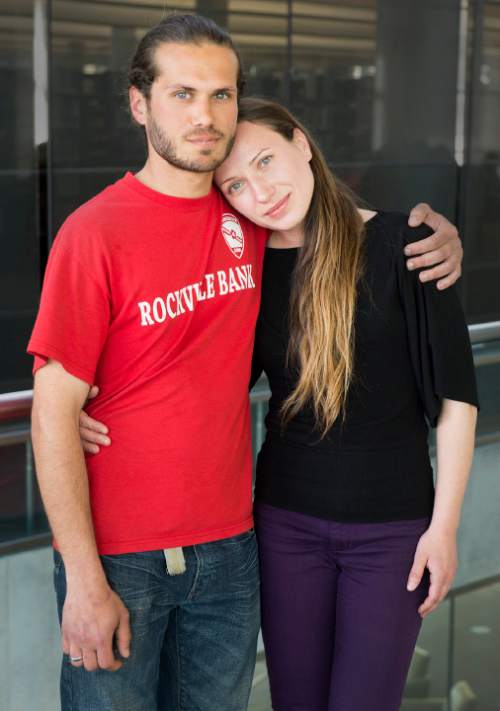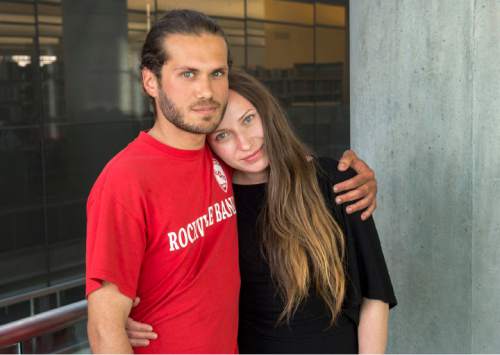This is an archived article that was published on sltrib.com in 2015, and information in the article may be outdated. It is provided only for personal research purposes and may not be reprinted.
A year ago, Alexey Gavrilov addressed a gathering in the main square of Kerch, a small Crimean city.
Out of nowhere, 300 angry men filled the square, denouncing Gavrilov as a traitor for opposing Russian annexation of the Ukrainian peninsula jutting into the Black Sea.
"I had never seen them before. We just wanted to discuss the situation and stop people from being angry and stop listening to Russian news," Gavrilov said. "They were screaming at us that we were fascists. 'Now kill them.'"
A week later Gavrilov and his wife ,Yevgeniya Kovalenko, fled Crimea and landed in Utah, where Gavrilov studied business five years ago at Weber State University.
The couple on Saturday attended a film screening at the Salt Lake City Public Library hosted by Nova Ukraine, an organization formed last year to raise awareness of Ukraine's challenges as it embraces democracy and shakes off corruption in the face of a civil war and foreign invasion.
Twenty-four years after it gained independence from the Soviet Union, Ukraine is now navigating a much more difficult transition. Ukrainian-born Utahns have formed a chapter of Nova Ukraine to pass humanitarian aid to those displaced by the turmoil.
"Last year hit most of us like a ton of bricks. Seeing kids our age killed there was traumatic, nothing like that happened," said Liliya Velbovets, who helped found the new chapter.
The group also wants to fight corruption by supporting independent news media to counter the propaganda that characterizes much of what comes from state-sponsored media, according to chapter president Alyona Georgiu.
On Russia's western frontier, Ukraine is the largest nation entirely in Europe, home to 45 million people, including those living in Crimea, which Russia annexed last year.
On Saturday, the group screened the independent documentary "Stronger Than Arms," featuring footage of the December 2013 protests and street clashes around Kiev's Maidan Nezalezhnosti, or Independence Square, where demonstrators called for more transparency in government and closer ties to Europe.
These events, now known as the Maidan Revolution, led to the ouster of President Viktor Yanukovych, viewed by some as a corrupt pro-Russian puppet. Since then, ethnic Russian separatists, with backing from Russia's powerful military, have waged war with government troops for control of the eastern and southern parts of the country.
The filmmakers also visited Yanukovych's deserted hometown of Zhukovka and recorded the government's battles with pro-Russian rebels for Donetsk province's airport.
The conflict has driven a wedge through Ukrainian society. Yevgeniya Kovalenko says people who were friends would no longer speak to her.
"I ask why you stop having relationship with me? 'Because you are Ukrainian.' They say we started this, but we are trying to stop it,'" she said.
Returning home to Crimea is not an option.
"They have promised to kill us," said Gavrilov, a Russian who grew up in Moscow. He faces a 20-year prison sentence back home because of his support for Ukrainian sovereignty.
Twitter: @brianmaffly





